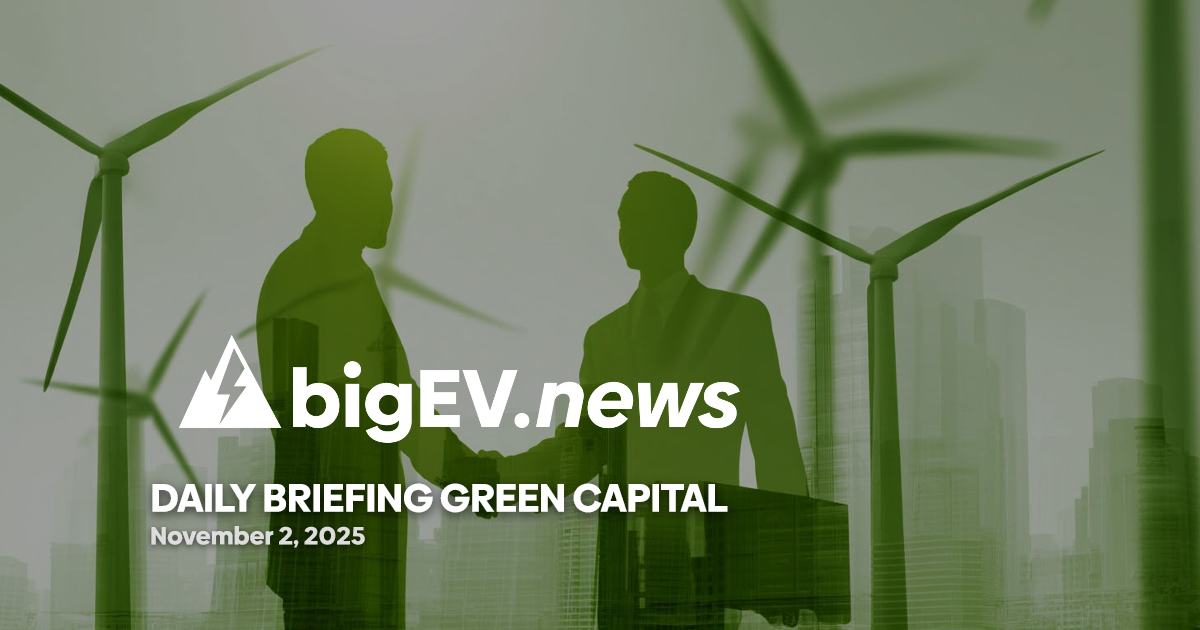Global green finance accelerates, with ESG tokenization, new bonds, and major corporate climate pledges reshaping capital markets and powering the clean transition.
At a glance – In the past 24 hours, the green capital and ESG investing sector witnessed a surge in innovative financial instruments, landmark corporate sustainability commitments, and pivotal policy discussions. Major retailers, venture capital forums, and global financial institutions unveiled new strategies to channel capital into climate-positive projects. These developments signal a maturing market where sustainable finance is increasingly mainstream, and where technology-driven solutions are unlocking new opportunities for investors and clean tech entrepreneurs alike. The sector’s momentum is underscored by robust earnings reports from sustainability-focused corporations, the launch of tokenized ESG assets in emerging markets, and the expansion of green bond offerings, all converging to accelerate the clean technology transition.
Technology advance – ESG tokenization is rapidly transforming capital markets in emerging economies, as demonstrated by platforms such as CarbonX and Verra. In Q3 2025, tokenized trade finance emerged as a low-volatility asset class, with minimum investments as low as $100, democratizing access for retail and institutional investors. Blockchain-based smart contracts and fractional ownership models are reducing transaction costs by up to 85%, as seen in Hong Kong’s tokenized green bonds and solar projects. The integration of AI and IoT with blockchain is further enhancing transparency and compliance, enabling real-time tracking of carbon sequestration and energy output. Fitch Ratings projects ESG sukuk (Islamic bonds) to exceed $50 billion in 2025, while tokenized funds could reach $600 billion in assets under management by 2030. These advances are addressing long-standing inefficiencies in ESG investing, particularly in regions with limited financial infrastructure.
Partnerships – The 2025 Qingdao Venture Capital Conference, held on September 26, convened leading investors, policymakers, and entrepreneurs to discuss ESG financial reform and green finance innovation. The forum highlighted cross-sector collaborations between venture capital firms and clean tech startups, focusing on scalable solutions for renewable energy, sustainable agriculture, and circular economy models. Participants emphasized the importance of integrating ESG metrics into investment decision-making and called for standardized reporting frameworks to facilitate global capital flows. The conference also showcased joint ventures between Chinese and international financial institutions aimed at accelerating the deployment of green bonds and climate-positive infrastructure projects across Asia.
Acquisitions/expansions – In a major expansion move, EDF announced the issuance of tokenized green bonds on a public blockchain, tying environmental performance directly to investment outcomes. This innovative financial product allows investors to track the impact of their capital in real time, increasing transparency and accountability. The bond issuance is part of EDF’s broader strategy to scale renewable energy projects across Europe and Africa, leveraging digital assets to attract a wider pool of investors. The company’s expansion into tokenized finance is expected to catalyze additional green bond offerings from other utilities and infrastructure developers, further fueling the clean technology transition.
Regulatory/policy – Policymakers are responding to the rapid evolution of ESG investing with new regulatory frameworks aimed at enhancing transparency and mitigating greenwashing risks. The World Bank released updated guidelines for ESG data reporting in sustainable development projects, emphasizing the need for harmonized standards across jurisdictions. Regulatory fragmentation remains a challenge, particularly in emerging markets, but collaborative efforts between regulators, technology providers, and financial institutions are underway to address interoperability issues. The integration of AI-driven compliance tools and IoT-based verification systems is expected to play a critical role in ensuring the integrity of ESG-linked assets and facilitating cross-border capital flows.
Finance/business – Costco Wholesale Corporation reported an $86.2 billion revenue quarter, beating analyst expectations while advancing its net-zero emissions pledge. The retailer’s Climate Action Plan includes rooftop and off-grid solar installations, EV charging stations, and efficiency upgrades, alongside sustainable sourcing programs for seafood, coffee, and timber. Investors are closely monitoring Costco’s progress on interim 2030 climate targets, viewing its ESG initiatives as integral to long-term risk management and margin stability. The company’s strong financial performance, coupled with measurable climate commitments, positions it as a leading option for both traditional and sustainability-focused investors. Meanwhile, the global retail sector is projected to grow 4–5% annually until 2030, with ESG performance increasingly influencing competitive dynamics and consumer preferences.
Sources: carboncredits.com, ainvest.com, cgtn.com, fitchratings.com, worldbank.org, costco.com









